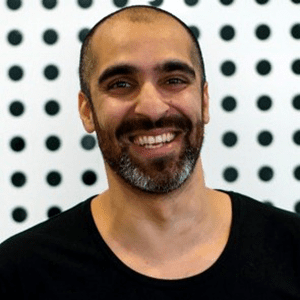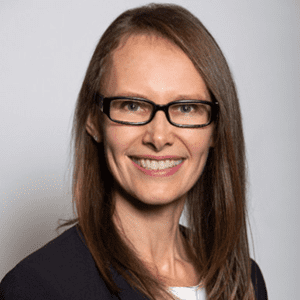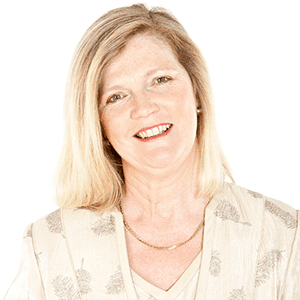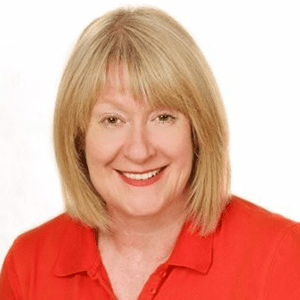
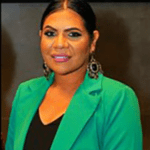
How business can support First Nation peoples in Australia
In this inspiring podcast Nicole Golan, a proud Ngarrindjeri woman and CEO/Founder of Nik&Co. consultancy, speaks from the heart. Nicole highlights the inequity in our society and brings to life how business has a role to play in making a difference.
Nicole and Stephanie Christopher unpack what reconciliatory practices within a business environment look like. How do leaders embrace reconciliation and inclusive practices within the workplace, and where to start?
The good news is that ‘anybody can make a difference and support equality and justice for first nations peoples by applying a cultural lens over everything we do. We have to confront our history to be able to build our new world together.
Nicole delivers a powerful and thought provoking vision.
Stephanie: Welcome to TEC Live, Stephanie Christopher here, CEO of The Executive Connection. We connect leaders with a trusted network of people who help them succeed.
Leah: So Steph, I believe this is a very special one all in keeping with NAIDOC Week, which is awesome.
Stephanie: It is Leah. It’s a very special podcast today, and I’m really excited to introduce our special guest, Nicole Gollan, who is a proud Ngarrindjeri woman and CEO and founder of Nik & Co. Consultancy. Nicole is a wonderful ambassador for reconciliation with many years’ experience in the government, university, and community sectors. Supporting the journey in developing respectful opportunities and meaningful relationships with Aboriginal and Torres Strait Islander communities. And we will get back to Nik & Co. In a minute. Nicole, welcome to TEC Live.
Nicole: Thank you so much.
Stephanie: It’s wonderful to have you here, beaming in from beautiful Adelaide and I’m sitting here and raining revolting Sydney, but it’s great to have you with us today. Thank you so much. I’m going to start with some questions and I may sound a little naive. It’s wonderful to have someone who can really help me understand this and certainly help our listeners to understand this. When you talk about developing meaningful relationships and respectful opportunities with Aboriginal and Torres Strait Islander communities, that sounds so compelling. I’d love you to explain more about what that means.
Nicole: I guess for years and decades Aboriginal people have had things done to them. We’ve had colonisation done to us. We’ve had with the best intent programs, services, policies done to us. Nik & Co. And my position as a Ngarrindjeri woman, a proud mother, and an auntie and a nana and a sister, and all the other titles that go with my beautiful cultural kinship system is that it’s really important to work with us. And I think that’s the biggest part that people, it’s a very easy concept to get your head around. I believe that anybody that is under marginalized or has been dealt with in a way that is very unfair and unjust. It’s a solution-based opportunity to work with people who have been under marginalised and who have been dealt a very unfortunate card due to the base of their race.
So, to work together and work with Aboriginal communities, you understand that there will be collaborative solutions, there will be co-solutions that will be formed with good intentions and with Aboriginal peoples, which the buy-in and the meaning of that is so much more genuine and much more impactful when you involve us in solution based opportunities.
Stephanie: Yeah, that makes so much sense. Tell me a bit about your own story then. What have been examples for you through your life where you haven’t had co-creation of opportunities or collaboration or agency I think you’re referring to as well, in your own decisions? What are some of the experiences that you’ve had Nicole?
Nicole: And I think it’s really important to always acknowledge your position of influence in an organisation. And to be that opportunity to leverage and broker such opportunities, recognising your power and your position that you own within an organisation. For me, I’m very privileged to be in a position that very much influences meaningful change for my people, and that is solely based on the understanding that you need an Aboriginal person in an Aboriginal identified role to then work with Aboriginal people and support and advocate for change.
Stephanie: Have you always been in that position?
Nicole: I am a teacher by trade, a primary school teacher. I guess I have a lifetime on the of observing racism at its worst due to family unfortunately being subjected to very racist attacks throughout their life. And I guess for me to be able to acknowledge the opportunities of influencing change when I am in positions of authority, such as a primary school teacher, where you’re able to have these conversations with our future generations and embedding seeds of knowledge about truth telling of this country. I think anybody in positions of power or authority should always advocate for truth telling of this country. That is something that I have experienced is a very large gap in our community. And as specifically in Australia, we find it very hard to acknowledge what the horrific past of Australia. It continues to be a blind spot, but in 2022, we are getting to a point where conversations irrespective of how uncomfortable they are, they need to be had because especially with the Black Lives Movement, that has really instigated some conversations that have been well overdue around systematic change for our people.
Stephanie: And so, a question about that while you were talking, I was thinking exactly about the Black Lives Matter movement. Do you find that Australians, when they relate to that, they relate to it as something that’s happening in other countries and watched on the news, well, this is really happening in the wow, the US, it’s such a big movement and even in the UK, but that’s not relevant here. That’s just a hypothesis, but is that something you saw, do you think or you see?
Nicole: It’s something that I live and my family lives as I mentioned, there’s a blind spot. And we are so quick to acknowledge the racism and the unjust and the inequity in other countries, specifically the United States. However, we are absolutely contradicting ourselves on so many levels because it’s happening in our very own backyard in Australia, which is why the Black Lives Matters movement really finally started to encourage people to engage in substantive conversations about an often untouchable issue, which is obviously racism and white privilege.
Stephanie: It’s a painful issue. And interesting in what you were saying about the truth in storytelling. There was a word that, sorry, you used a better phrase than that, but about really openly acknowledging the past, well now our shared history. Is that something that you think is going to be a key pillar of reconciliation?
Nicole: Absolutely. There are many generations who actually do not fully understand what has happened to Aboriginal peoples in this country. So, if you don’t know what you don’t know, then how do you know how to support? So, which is why we are so extremely supportive of allyships in our non-Aboriginal friends. It’s so important to have our allies be able to confront their own colleagues or friends or family members because it already is a very uncomfortable and sadly a conversation that we continuously have to have with non-Aboriginal people. So, the concept of allyship in our non-Aboriginal friends is something that I am tremendously supportive of and I’m constantly advocating for in all of my spheres of influence.
Stephanie: It’s a beautiful word. I love allyship. Tell me what that means.
Nicole: I guess first and foremost, it’s about forcing people or I guess the Black Lives Matters movement really did actually force people across many public, private institutions to realise that they must step up if there’s any hope of making change for a more diverse, fair, and inclusive Australia for Aboriginal people.
Stephanie: So, I ask on this podcast so many times and where can we start? Where can a business person start? But I’m going to take you back to your teaching, primary school teaching because it makes sense that we start with our children. Well, that’s one place to start, doesn’t it?
Nicole: Absolutely.
Stephanie: In bring them up into a different culture, which I know they already are from when I was at primary school many, many years ago. What difference can we make with our children for starters?
Nicole: A word that I really appreciate for when I engage with anybody in any organisation, and this would include the education system as well, is the significance and the importance of an including a cultural lens and applying a cultural lens over everything that you do. Aboriginal lives matter in every sector, in everything that we do. It’s not just in the sporting world and in the art world where-
Stephanie: Where it’s comfortable. Yeah.
Nicole: That’s right. That’s exactly right. Anybody can make a difference and support equality and justice for Aboriginal peoples. And again, it’s reverting back to the sense of allyship. And whether you’re a teacher or a CEO or a gardener or any position, right? That we have or any role that we play in society, allyship can be used in such a way that is a strategic mechanism that can be used by any individuals to become collaborators, accomplices, and co-conspirators who fight injustice and promote equality and equity. And that can be through supportive personal relationships and public acts of advocacy, allies endeavour to drive systematic improvements to workplaces that could include policies, reviewing your policies and applying a cultural lens over your policies, your practices, and first and foremost to include our beautiful culture, which is the oldest living culture on this earth. And how could we not be so proud of that?
So, as a teacher, I was consistently weaving in our cultural practices into my mainstream role as a teacher. And what I found is that today we know that there’s so much to be learned from Aboriginal peoples. First Nations peoples have been practicing amazing, amazing things over the history. And what we’re finding is that society are seeing that there is much to learn from First Nations peoples.
Stephanie: You said something so interesting, anyone can make a difference. So, let’s talk about the difference that you see business can make. So, tell us about Nik & Co.
Nicole: Nik & Co. is a very personal consultancy, has very personal meaning to me. It was developed solely on the basis of me as an Aboriginal woman seeing the inequity in our society. As a mother, that is absolutely painful for me. I am a mother to a 12 year old son and he has beautiful, beautiful melanin skin, and what we know about that bow in this country is that he is automatically a target for racism, right? So as a mother, and also viewing these inequities in our society and also my professional roles throughout the years in supporting policy change and implementing inclusive services and practices to support the closing of gaps, the obvious are very real gaps between Aboriginal and non-Aboriginal peoples. To be able to then have Nik & Co. to be able to be that vehicle of change irrespective of your sector or your field that you operate in, it’s such a great opportunity to be able to influence change, and to be able to support organisation or small businesses to be able to really interweave genuine reconciliatory practices into corporate and community settings.
Stephanie: What do they look like, Nicole? So, when you say working with small businesses, and I love the word genuine and I love reconciliatory practices, that’s great. What does that look like?
Nicole: It could be the implementation, for example, of innovative programs that respond to community needs or the inclusion of culturally inclusive policies and strategies. Or it could just include the development of a reconciliation action plan, which is a framework managed by Reconciliation Australia. To be able to have the intention to approach each of our clientele with fresh eyes to develop customised, unique, innovative strategies in support of the organisation’s reconciliation aspirations is something that we do aspire to.
Stephanie: Yeah, I like that. So, the businesses that are coming to you, what are they asking for?
Nicole: They are asking for help. You don’t know what you don’t know, but they do know that there is disparity in the livelihood of Aboriginal peoples. So, I guess that’s my biggest I guess, piece of advice is that if you understand that there is a disparity and there is inequality, your next step would be to seek out an Aboriginal consultant or an Aboriginal community member or an Aboriginal leader or an Aboriginal elder or an Aboriginal organisation to be able to ask, I don’t know, but how do I do it? How can I support reconciliation within my workplace? How can I support inclusive practices? And so, we’re going back to the ideal of talking with an Aboriginal person versus doing for and doing at and doing to an Aboriginal person.
Stephanie: That’s a significant difference, isn’t it? That’s a real shift. And the doing for and to has its own dreadful history in this country. But that talking with… So, if a small business wants to embrace reconciliation from where they are with that view, then anyone can make a difference. Am I hearing from you because it’s exactly where I am, I wouldn’t even know where to start. I wouldn’t know what resources to look at. I’d be thinking, well, this is my own cultural challenges I have to face. What about my organisation? I’m hearing from you engage with an Aboriginal expert.
Nicole: Absolutely.
Stephanie: And talk to them about where to start.
Nicole: Absolutely. We know our lives and we know the gaps, and it just absolutely makes sense that you will talk with an Aboriginal person about how to support the change and the movement.
Stephanie: And so, if you came into a small business, if you came into my business or any small business and you met someone well-meaning intended, well intended, but with no idea, where would you start? What would you be looking for to start with?
Nicole: Absolutely. So first and foremost, it’s about understanding the organisation or my clients that I work with and understanding the breadth of their delivery or their service, and this. And then it’s about understanding the cultural lens that could be applied over the business, which immediately allows the opportunity to really understand and unpack the opportunities. And I think that’s a really important exercise. Applying a cultural lens over everything that we do. With an Aboriginal person, you’re able to see that you can actually do a lot more than you initially realise. And also acknowledging that you are at the start of your journey as an organisation in regards to understanding Aboriginal Australia. Nik & Co. has preferred providers around cultural safety and respect training, which is an opportunity for professional development for your business to really unpack the history of Australia, the Black history of Australia. And so, understanding where we came from really allows for the opportunity to understand where we really want to go.
Stephanie: Yeah, that’s great. It’s practical, however, in a fairly significant way.
Nicole: Yes. Yes. It’s important to be holistic when specifically operating in the space of reconciliation. It’s not one thing that we can do, it’s really unpacking the past, which is obviously very challenging and confronting for a lot of people. As we know, there are a lot of people that live in denial or like I mentioned, have a blind spot, a permanent blind spot in regards to around the truth telling of this country, which is why it’s really important that Nik & Co. has engaged facilitators, experts in the field to facilitate conversations specifically around cultural safety and respect in the workplace.
Stephanie: So, just thinking about from a whole society point of view, how meaningful was it for Aboriginal peoples, and I guess that’s perhaps generalising, but the apology that was made to the stolen generations. How important was that as part of reconciliation?
Nicole: I guess it’s twofold for us. Obviously having the opportunity to hear from the Prime Minister at the time to present that apology to Aboriginal people, to specifically the stolen generations was a very pivotal moment for us. But what happens after that?
Stephanie: Well, I was going to say, even as I said I thought, boy, that’s a long time ago.
Nicole: It is. It is. And we still have very, very large gaps between Aboriginal peoples and non-Aboriginal peoples in regards to health outcomes, educational outcomes, which is why it’s really important to operate from that holistic perspective and be very conscious of your subconscious behaviours.
Stephanie: I know. I am moved by this conversation, and I’m also being mindful, I don’t want to pretend to be something I’m not. However, this discussion has really brought to life for me the business can make a difference here, that actually and you’re giving such a powerful message about we have to confront our history to be able to build a new world together. But business actually does have a role to play in it, even small business, not just policy. So, here’s my big question for you that you won’t have prepared to bring this together. What’s your vision for Australia, Nicole? What would you like to see happen in Australia? A big, big vision.
Nicole: I dream that my son not be judged simply by the colour of his skin. I dream that he can live young and free in this country as the words of our national anthem states. I dream that he lives a life without experiencing the detrimental, adversities and harm of racism. I dream that the physical and mental impacts of racism that he will one day face does not impact his very existence. That is my ultimate dream, to protect my child along with current and future generations. I know that a lot of people can relate to that concept, protecting children because we all have or know little people in our lives. And the impacts of racism is an incredibly disheartening reality for First Nations peoples of this country to have to live with every single day of our lives. So, you ask my ultimate vision, an Australia without racism, an Australia who respectfully advocates and actively supports for inclusivity, equality, and justice for its First Nations peoples, enough so that there is influential change for both current and future generations. This is my ultimate vision for Australia.
Stephanie: Thank you for sharing a profound and personal dream and for beginning what is a massive conversation that is so powerful and relevant to business as it is to every single person in this country. Nicole Gollan, thank you so much for your time and your openness. And thank you for joining us on TEC Live.
Nicole: Thank you so much for having me.
Stephanie: Discover more about TEC at www.vistage.com.au.
